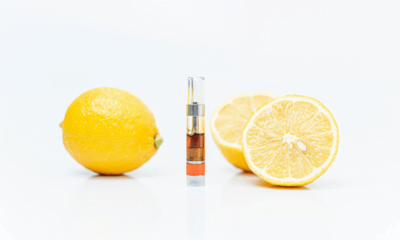CBD has been shown to have possible health benefits for women facing postmenopause-related disorders.
A new animal study suggests that cannabidiol (CBD), a major component of the cannabis plant, could be used as a possible treatment in postmenopausal women, whose ovaries no longer make estrogen.
CBD is becoming more widely used to manage symptoms of conditions such as chronic pain, inflammation, migraines, epilepsy, autoimmune diseases, depression, and anxiety.
In the study, led by researchers at Rutgers University in the US, scientists reported that when estrogen-deficient mice were fed CBD, they showed marked improvement in several areas.
Their bloodstreams more readily disposed of glucose, and they burned more energy. In addition, their bone density improved, they had less inflammation in gut and bone tissues and they possessed higher levels of beneficial gut bacteria.
Diana Roopchand, an assistant professor in the Department of Food Science of the Rutgers School of Environmental and Biological Sciences (SEBS) and senior author on the study, commented: “This preclinical study is the first to suggest the therapeutic potential of CBD for alleviating symptoms of estrogen deficiency.
“There is much anecdotal evidence of CBD’s health benefits for menopausal and postmenopausal women, but our study is the first to investigate some of the claims in an established preclinical model of postmenopause.”

Women spend about one third of their lifetime in the postmenopausal stage, defined as one year after the final menstruation, which occurs around the age of 51.
In human females, the steep decline in estrogen levels after menopause can often lead to a host of health concerns, including weight gain, cardiometabolic disease, osteoporosis, gastrointestinal disorders and cognitive decline.
Hormone replacement therapy (HRT) exists as one of very few treatment options, but the risks and benefits of HRT are variable and depend on age, individual health status, dose and type of HRT. Notably, clinical studies indicate that HRT use in women over 60 leads to greater risk of heart disease, stroke, blood clots and cancer.
Over 18 weeks, researchers fed the estrogen-deficient mice a steady diet of either tiny, CBD-laced peanut butter balls or peanut butter balls without CBD.
The untreated estrogen-deficient mice developed symptoms that resembled those of postmenopausal human females, such as metabolic dysfunction, evidence of inflammation, lower bone density, and lower levels of beneficial gut bacteria. However, in mice that ingested CBD, these conditions were significantly improved.
“Other therapeutic options with fewer safety concerns are needed for prevention of chronic disease in this underserved demographic,” Roopchand added.
“CBD is already being used by many women to deal with symptoms of menopause and postmenopause.
“This study provides preclinical evidence to support further investigation of CBD as a therapeutic for postmenopause-related disorders.”

 News6 months ago
News6 months ago
 News6 months ago
News6 months ago
 Science5 months ago
Science5 months ago
 Industry6 months ago
Industry6 months ago
 News6 months ago
News6 months ago
 News5 months ago
News5 months ago
 Health4 months ago
Health4 months ago
 News5 months ago
News5 months ago













